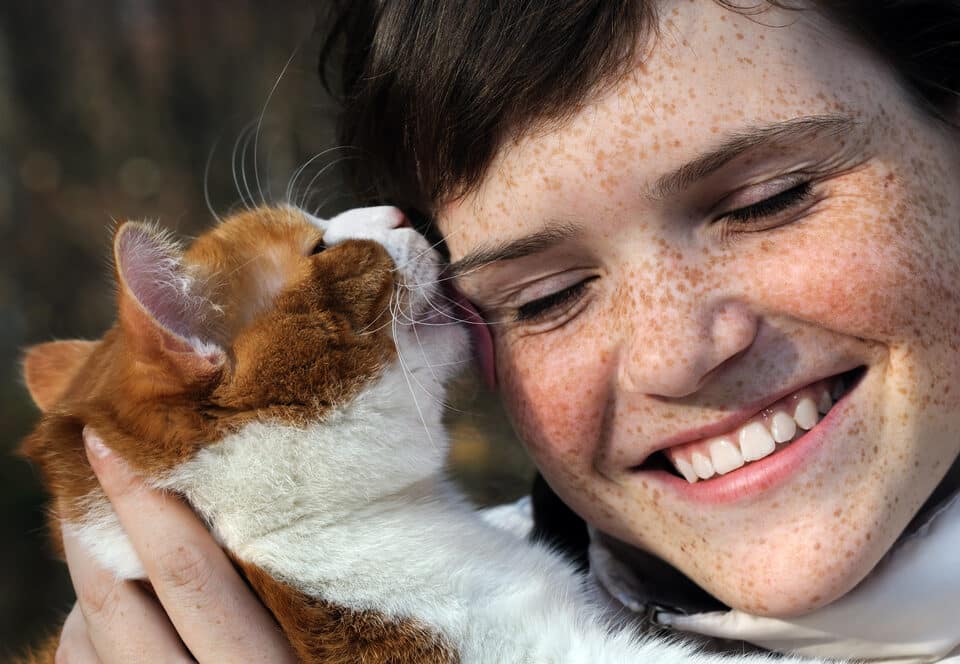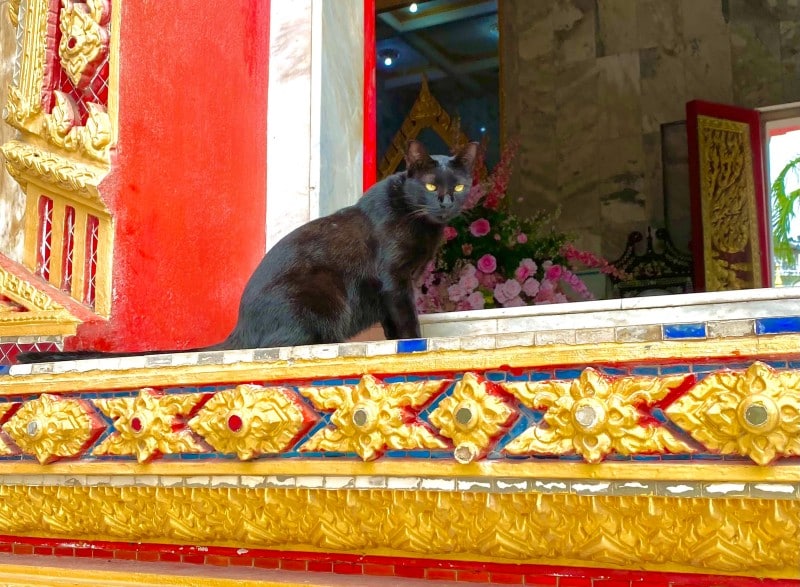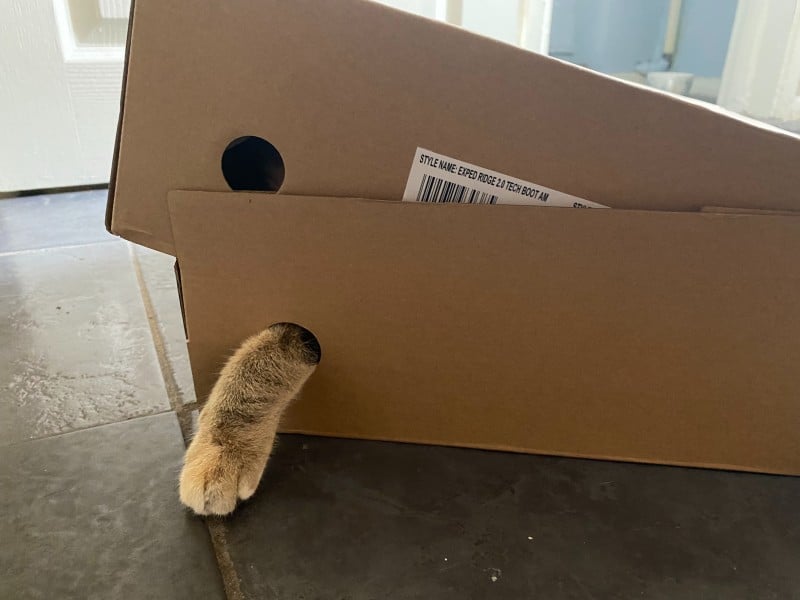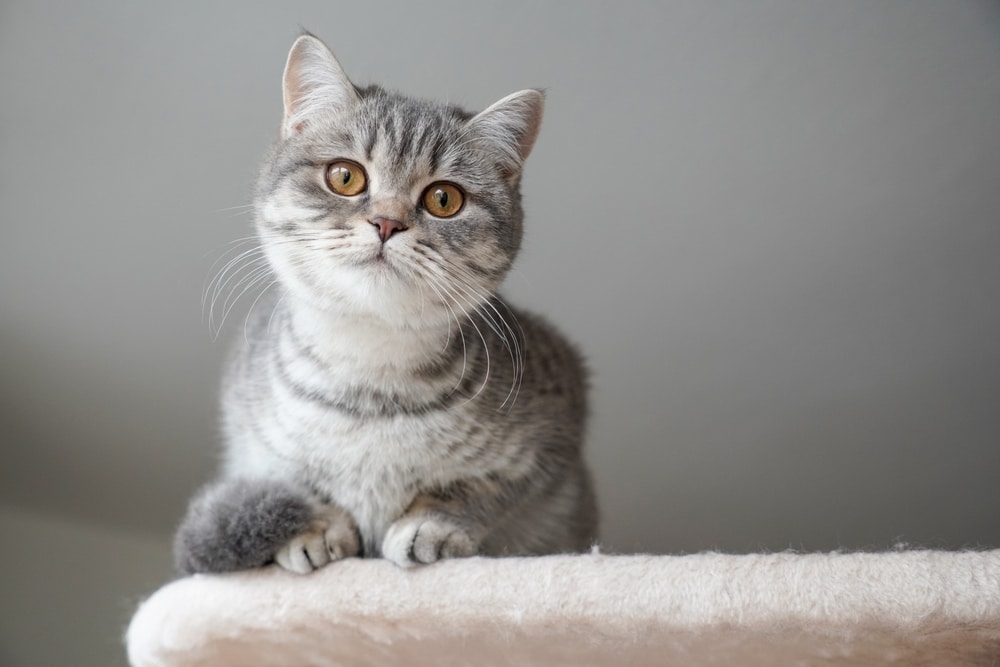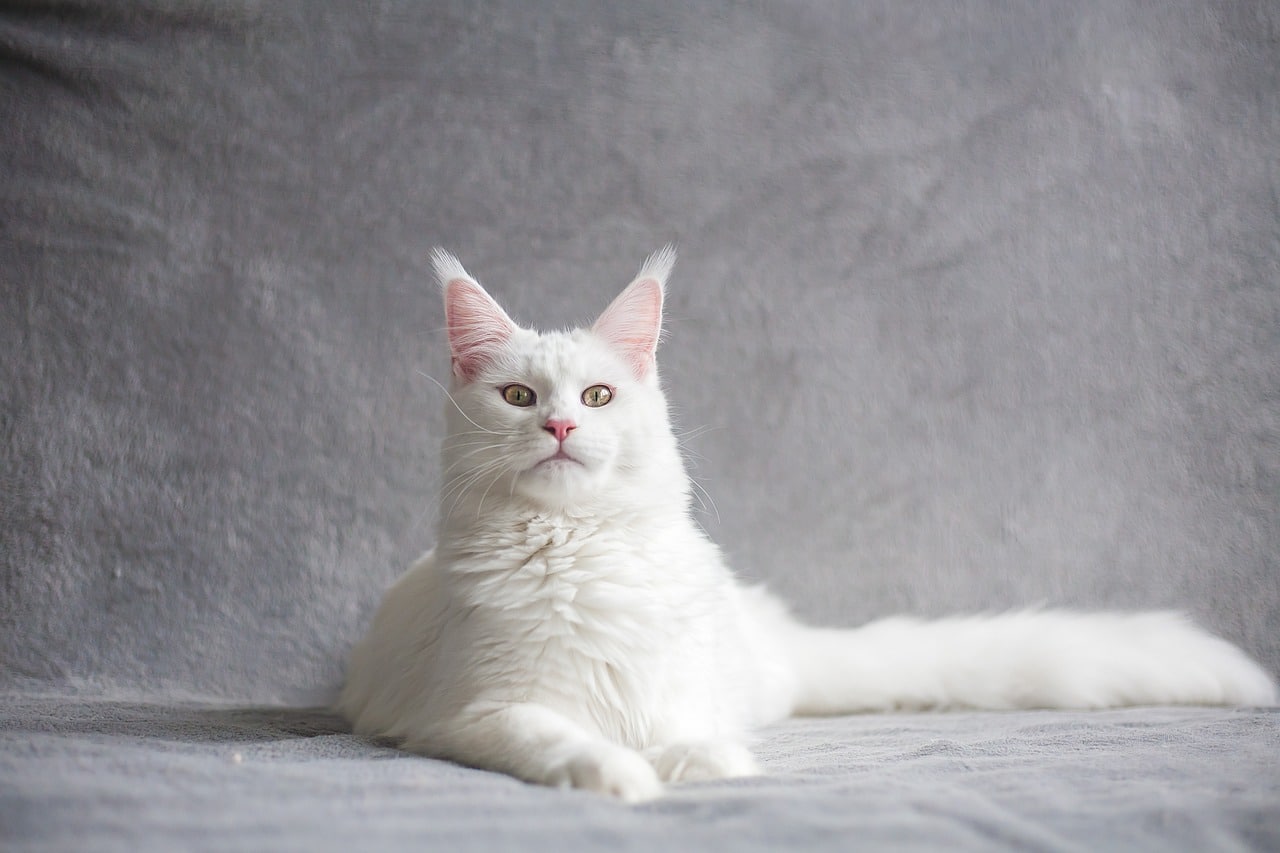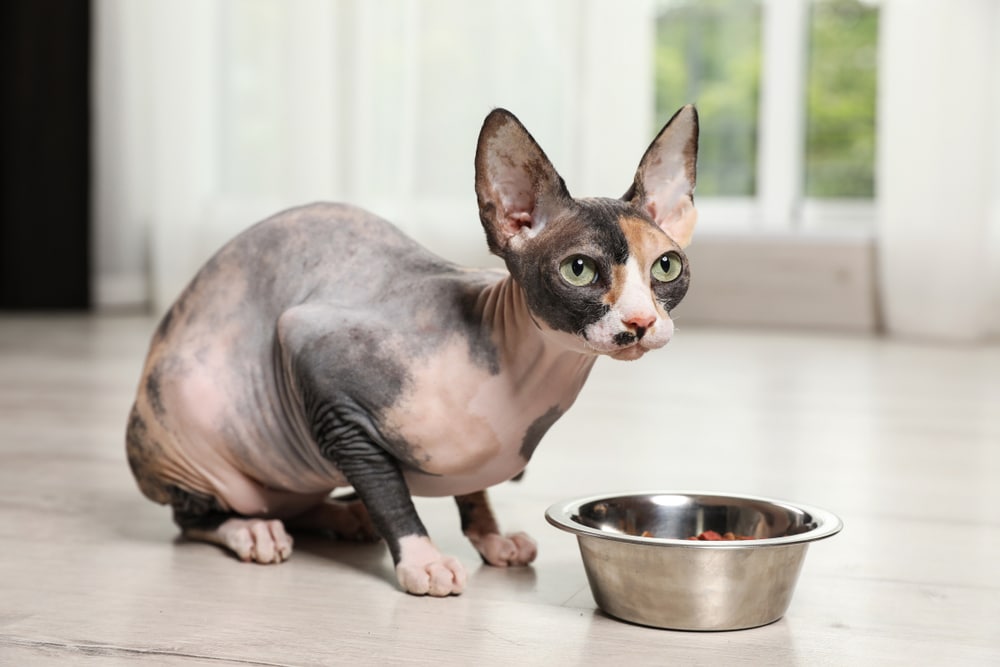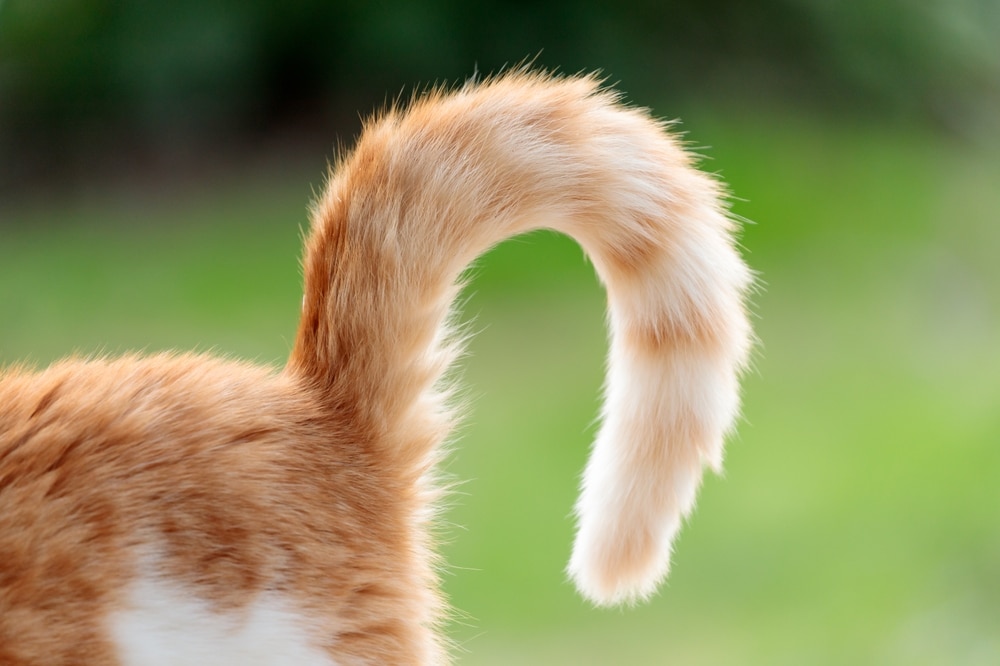Ever wonder why your cat gives you those unexpected face licks? It might seem weird, but there are some fascinating reasons behind it. Cats licking your face isn’t as random as it may appear.
Feline behavior might seem a bit mysterious, but there are reasons for it. Knowing why your cat licks your face can help address any concerns and ensure they are healthy and happy.
Fond Family Memories
A loving lick could mean you’re part of your cat’s inner circle. Cats lick their owners as a sign of family bonding. Cats mimic this behavior they learned from their mothers. This is your cat’s way of showing trust and affection.
Mother cats lick their kittens to make them feel secure, and now your furry friend might be doing the same for you. It’s like their special way of saying, “I love you, human!”
Attention Seekers
When a cat constantly licks due to stress, it’s essential to evaluate their environment. Look for things that might be stressing them out and consult a vet if necessary.
Pay attention to the places they choose to relax in. Cats prefer quiet spots where they feel safe from threats. This behavior might be a sign they need extra care or enrichment.
Handling Anxiety
Claiming Ownership
In multi-cat households, licking isn’t just for affection; it’s also about maintaining order. By licking each other, cats display group harmony and hierarchy.
Through social grooming, cats build connections and prevent hostility. It’s all about keeping the peace and showing who’s boss.
Social Bonding and Hierarchy
Grooming Gestures
Cats love to groom, and sometimes that means grooming their human companions too. This behavior strengthens bonds between cats and their human guardians.
Wild cats do this to create unity and peace within the group. By grooming you, your cat sees you as part of their community, reinforcing that unique bond.
When your cat licks your face, it might just be their way of making sure you’re ‘clean,’ just like they would for other cats in their group. This act deepens the bond and helps in establishing a strong relationship.
The Need for Comfort
Some cats develop a licking habit from an early age if separated from their mothers too soon. Licking might act as a self-soothing behavior.
Early weaning may lead to oral fixations later in life, which could manifest as excessive licking. It’s similar to human habits like thumb sucking.
So, when you notice constant licking, consider its comforting nature. It serves as a substitute for the maternal comfort they missed as kittens.
The Taste Factor
Has your cat ever licked you and seemed to relish it? It’s possible that something about your skin is appealing to them.
This could be due to the saltiness of your skin after a sweaty day, which is likely the reason your cat seems so interested. However, be cautious about creams or ointments on the skin—they might not be safe for kitties.
If your cat suddenly seems more interested in licking, it might be because of a new skincare product you’re using. Double-check ingredients to ensure they’re safe.
Medical Concerns
Increased licking could sometimes indicate underlying medical issues. Cats experiencing pain or nausea might lick more than usual as a distraction from their discomfort.
If there are other symptoms alongside increased licking, like changes in appetite or behavior, it’s time to visit the vet. Don’t ignore sudden shifts in your cat’s habits.
If the vet rules out health issues, consult a behaviorist to identify other potential causes. It’s key to get to the root of the licking habit.
Anxious Lickers
Behavior changes and excessive licking could be signs of anxiety. This might occur alongside other signs like hiding or eating less.
Sudden changes in their environment, like new visitors or loud noises, can trigger anxiety in cats, leading to licking as a calming mechanism.
If you suspect anxiety, prepare a safe space for your cat with familiar items to comfort them. Pheromone diffusers can also be calming aids.
Managing Excessive Licking
Stopping unwanted licking might require some patience and strategy. Redirecting their focus is often the best approach.
When they start licking, offer toys or engage them in play to distract them from this habit. Walk away if they persist, then reward calm behavior without licking.
Ensure the space where your cat spends most time is comforting and stress-free. An enriched environment with plenty of toys and hiding places can work wonders.
Wondering why your cat licks your face? It’s mostly about love, comfort, or sometimes stress. If there’s a sudden change or concern, a vet’s advice might shed light on it.
